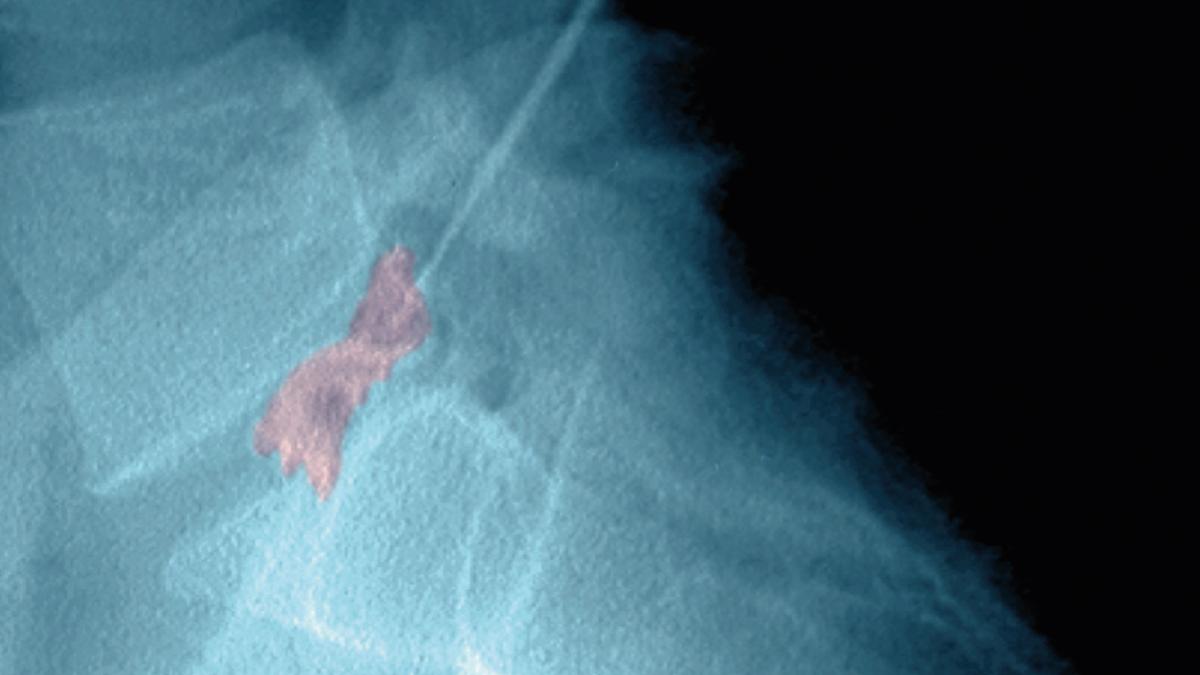From 1 July the CSP will be explicitly excluding a number of spinal injection interventions from cover within the CSP PLI scheme

Members who undertake these activities and rely on CSP PLI for their indemnity will need to adjust their practice in order to remain insured.
The CSP provides a Professional Liability Indemnity (PLI) scheme for members, which is a collective indemnity scheme for the benefit of the majority of CSP members. It provides medical malpractice, professional indemnity and public liability cover for an individual’s physiotherapy work. As with any insurance product, it has terms, conditions and exclusions in place.
Therapeutic injection therapy has been within the scope of physiotherapy practice since 1997. This typically includes injection to the structures of the peripheral skeleton and increasingly, with advances in professional capability, may now include injection to the structures of the spinal skeleton. All injection therapy carries risk, however the risks for spinal injection interventions are greater, including the risk of life changing and/or catastrophic outcome.
In the light of current regulatory advice and practice guidance, the CSP has taken a pragmatic risk-management decision to be very clear to members that some spinal and other interventions will be explicitly excluded from PLI cover from 1 July.
The explicitly excluded activities will be:
- regional and general anaesthesia
- epidural injections with or without the use of local anaesthetic
- spinal and caudal injections
- spinal and caudal nerve blocks
Scope of practice
Regional and general anaesthesia is already outside the scope of physiotherapy practice, and thus already outside the scope of PLI cover, but may be within the capability frameworks of advanced practice (AP) as set by Health Education England. Spinal, caudal and epidural injections, either with or without local anaesthetic similarly are advanced practice activities. AP roles are very much open to physiotherapists to move into and this means they may undertake tasks within their job description in which they are educated, trained and competent but which may be outside the scope of physiotherapy practice.
What is important with AP roles is that they are primarily an NHS framework and the NHS employer must have a robust training and governance policy and procedure in place to support staff who move into these advanced practice roles. The NHS also holds the indemnity for all NHS activity, rather than the individual.
Health services regulation
The Care Quality Commission (CQC) regulates health and social care provision in England. While individual HCPC-registered physiotherapists are exempt from CQC registration, the CQC does provide clear guidance for doctors that epidural administration of medicines must not occur in private practice1. There is therefore no logical reason why physiotherapists should be undertaking this activity in independent private practice.
Standards of practice
The Royal College of Anaesthetists (RCoA) produces clear practice guidance for the performance of epidural injections2. The stringent requirement of this practice guidance mean that non-hospital settings and independent private practice are unsuitable settings for offering such services.
Practice settings
The CSP expects members who undertake a range of spinal injection services to do so in appropriate hospital settings, with access to medical support and supervision as well as robust organisational governance to ensure patient safety.
NHS roles often migrate into non-NHS practice as members choose to work across NHS and independent private practice, or move fully into independent private practice. The robust governance arrangements of the NHS, as well as the facilities and supervision the NHS provides, may not be replicated in independent private practice. This means that the risks of taking established NHS practice into independent private practice exposes both the CSP PLI scheme and members to serious risk should a claim arise, as well as the potential for significant patient harm.
What should you do now?
If you only undertake peripheral injection therapy, you may not need to do anything. These changes only affect specified spinal injection interventions and clarify the position on regional and general anaesthesia. Other therapeutic injection therapy techniques remain covered by the PLI scheme subject to policy terms and conditions.
If you work in the NHS, or are employed by an independent hospital provider you do not need to do anything. You can continue to undertake spinal injection services in accordance with your advanced practice role, job description and governance requirements including that your employer holds the indemnity for your work.
If you work in independent private practice as a sole trader, practice principal or contractor, or run your independent private practice through a limited company or partnership, you must take action now to review your services by 1 July and if needed to seek alternative insurance cover for spinal injection therapy services. Contact Graybrook Hallam for advice
The devolved nations have their own inspectorates:
The CSP’s Professional Advice Service
The CSP gives advice and support to members on complex and specialist enquiries about physiotherapy practice, including professional practice issues, standards, values and behaviours, international working, service design and commissioning, and policy in practice. Find out more here.
References
1Care Quality Commission Scope of registration: Independent medical practitioners working in private practice (changes from October 2013)
2NICE Recommendations for good practice in the use of epidural injection for the management of pain of spinal origin in adults
*This article was correct at the time of writing
Number of subscribers: 1
